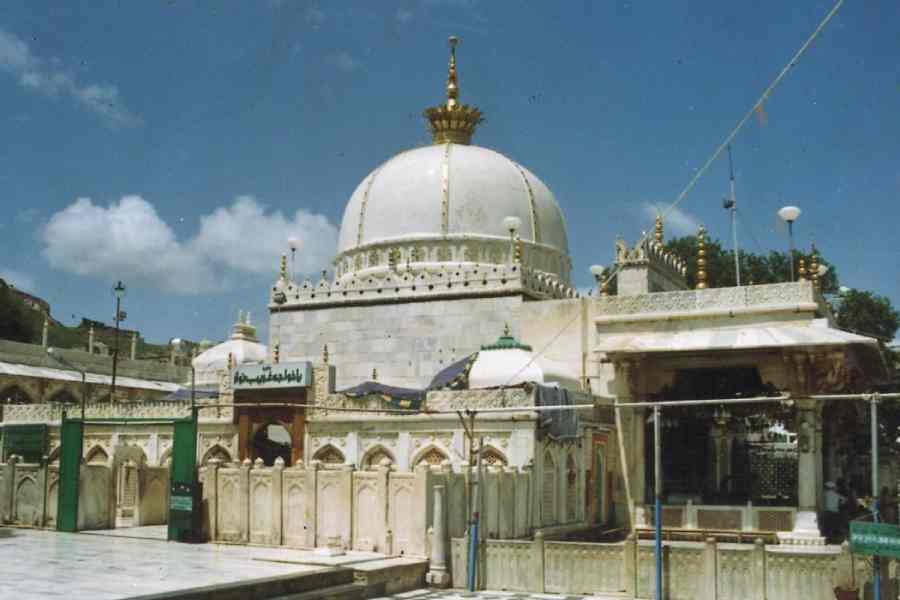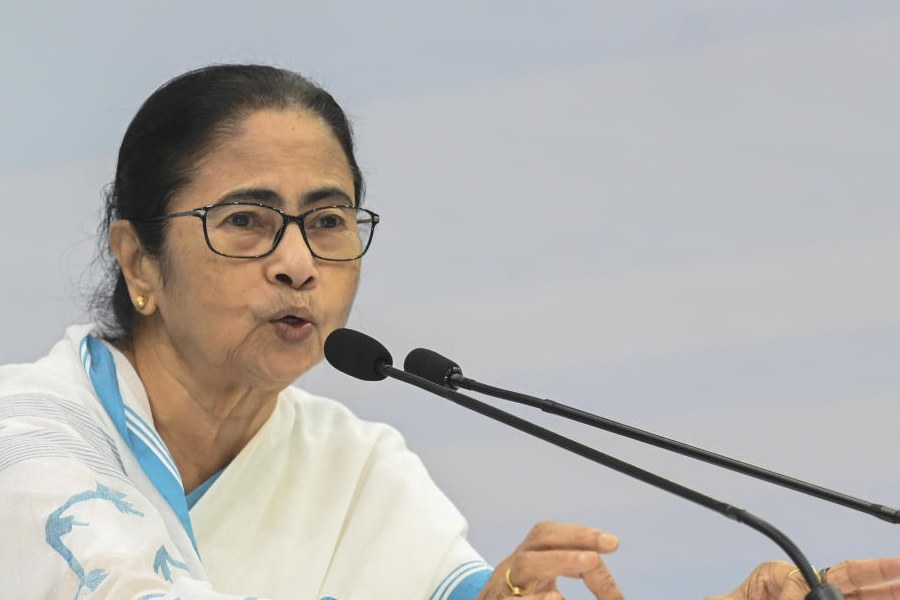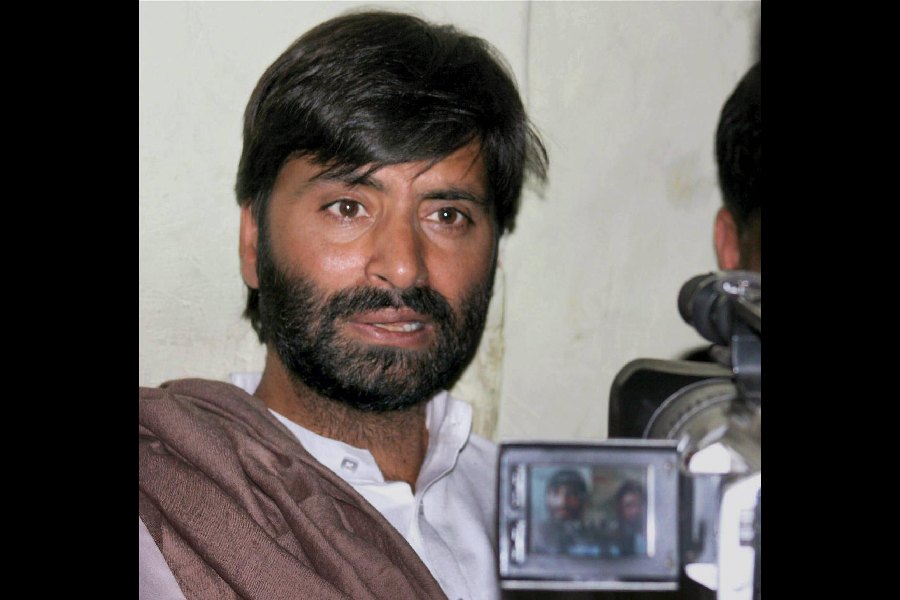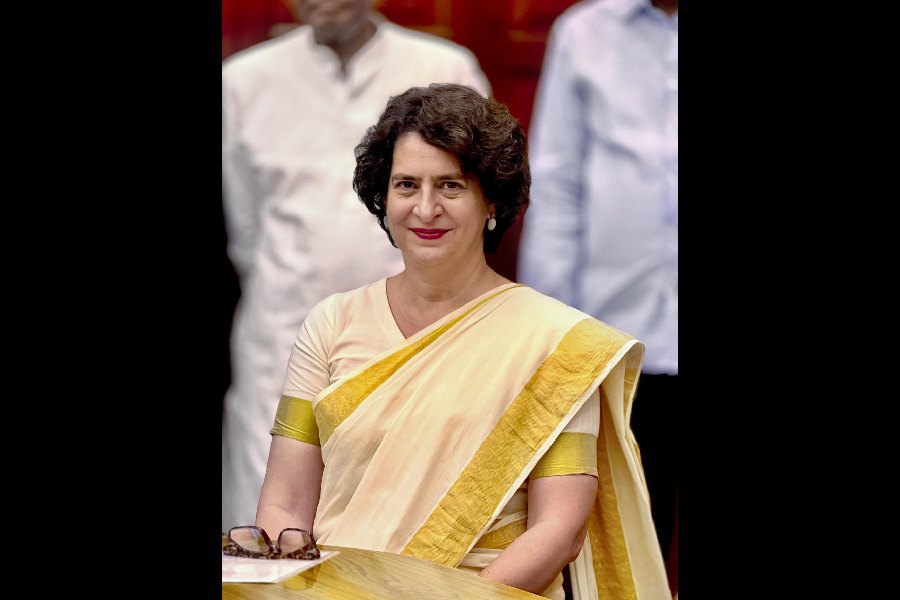The “hereditary administrator” of the Ajmer dargah and an outfit representing its khadims (caretakers) have condemned a plea in a local court that seeks to have the shrine to Khawaja Gharib Nawaz declared a temple, saying Right-wing forces are trying to “isolate” Muslims and “disrupt” communal harmony in the country.
A court in Ajmer on Wednesday issued notices to the Ajmer dargah committee, the ministry of minority affairs and the Archaeological Survey of India (ASI), New Delhi, seeking their response. The petitioner has claimed the dargah was built on the ruins of a Shiva temple that was “demolished by Muslim invaders”.
The petition has been filed by Hindu Sena president Vishnu Gupta, who has referred to a book by Har Bilas Sarda and his own “research of two years” to support his claim that there was a Shiv temple where the dargah was built.
Some have underlined how Prime Ministers -- including Narendra Modi -- have traditionally offered a chadar at the dargah.
A retired high court judge, a veteran lawyer and many Kashmir politicians have accused former Chief Justice of India D.Y. Chandrachud of having “opened a Pandora’s box” by refusing to stay an Allahabad High Court order allowing a “scientific survey” by the ASI at the Gyanvapi mosque complex to determine if the 17th-century structure was built upon a temple and saying publicly that he had prayed before a deity to “find a solution” to the Ram Janmabhoomi-Babri Masjid case.
Haji Syed Salman Chishty, the Gaddi Nashin (hereditary administrator) of the Ajmer Sharif dargah posted on X on Thursday: “Misusing courts and religious sentiments for divisive agendas defames revered Sufi shrines, erodes constitutional values and threatens India’s harmony. We appeal to the Hon’ble Supreme Court and the Prime Minister to act decisively against hate-mongers and uphold justice and unity.”
He added: “To those spreading falsehoods, we urge you to look into your hearts and reflect on the spiritual legacy of Khwaja Gharib Nawaz, who welcomed all with unconditional love and compassion. To the judiciary and the leaders of our nation, we appeal for discernment and wisdom in safeguarding the sacred traditions that have unified this land for centuries.”
Syed Sarwar Chishti, secretary of the Anjuman Syed Zadgan, a body representing the khadims of the Ajmer dargah, said the outfit should be made a party to the case. He said the dargah comes under the minority affairs minister and the ASI has nothing to do with it. He alleged the petition was an attempt to fracture society along communal lines.
“The community accepted the decision in the Babri Masjid case and we believed nothing would happen after that but unfortunately such things are happening again and again. The example of Sambhal in Uttar Pradesh is in front of us. This must stop,” Sarwar Chishti said.
Four men were killed during a mob-police clash in Uttar Pradesh’s Sambhal district on November 24 when local people resisted a court-ordered survey to look into the veracity of a petition that the Jama Masjid was built by demolishing a Harihar temple during the reign of Mughal emperor Babur.
Sarwar Chishti said he was seeking legal opinion in the dargah matter.
“The holy shrine of Khawaja Gharib Nawaz in Ajmer is revered by Muslims and Hindus across the world, especially in the Indian subcontinent. There is no doubt that Right-wing forces are aiming to isolate Muslims and disrupt communal harmony by eyeing the Sufi shrine,” he said.
“The petition appears to be a part of a larger ecosystem working against Muslims which is against secularism. The shrine is a great example of secularism where not only Muslims but also Hindus visit. This is the place of faith of billions of people living across the globe,” he said.
“The dargah is a symbol of communal harmony and secularism. It promotes unity in diversity,” Sarwar Chishti said. “Khadims, who are hereditary caretakers and custodians, have seen great times.... Today, mosques are being searched for the possible presence of Shivlings and temples, but these things are not in the interest of the country.”
Muzzafar Bharti, president of the United Muslim Forum Rajasthan (UMFR), contended that the petition was a “sheer violation” of the Places of Worship Act, 1991.
Bharti noted that the Prime Minister offers chadar to the dargah during the annual Urs and the tradition was started by Jawaharlal Nehru.
“Prime Minister Narendra Modi also sends chadar to the dargah during the annual Urs. He and the Supreme Court should take cognisance of such acts, which have huge potential to badly damage communal harmony in the country,” he said.
Justice B.G. Kolse Patil, a retired judge of Bombay High Court, told The Telegraph: “I had opposed the Babri judgment because although people thought the matter was finished, that had indeed opened a Pandora’s box…. Justice D.Y. Chandrachud’s intellectual dishonesty was seen in his judgment (in the Gyanvapi) case against the 1991 law.”
The Places of Worship Act, 1991, stipulates status quo at all places of worship as they existed on August 15, 1947, barring the Babri Masjid in Ayodhya.
Patil added: “There is no limit to conflict unless the 1991 law is implemented…. The 1991 Act is redundant now as every court is authorising surveys…. The only way to end this is to agitate on the streets…. The Supreme Court has to form a larger bench to set aside this (Gyanvapi order). However, since 2014, the Supreme Court has sparingly acted against the present regime.”
Senior advocate Indira Jaising told this newspaper: “The origin of these problems is the inability of the Supreme Court to implement its own judgment in relation to the Places of Worship Act, 1991. The only exception to the law was the Babri Masjid dispute, but the same Supreme Court allowed the Gyanvapi mosque to be inspected. To what end?”
She added: “There was no claim to the land but only a claim to determine the character of the religious structure. But to what end? To claim that it was a Hindu temple after all. This was and is the ultimate aim in all cases. What Parliament did, the Supreme Court undid.”
Senior advocate Sanjay Hedge said: “The suits in Sambhal and Ajmer ought to have been dismissed at the threshold as being barred under the (1991) Act. However, because of an oral observation by Justice (retired) D.Y. Chandrachud in the Gyanvapi matter, it is thought that the Act, while preventing change of character, does not preclude an inquiry into the nature of that character on August 15, 1947. I think it is frivolous and vexatious to entertain litigation where no ultimate relief can be given.”
The bench headed by Justice Chandrachud had told the Anjuman Intezamia Masjid Committee, which manages the Gyanvapi mosque, that “what is frivolous to you is faith to the other side”.










